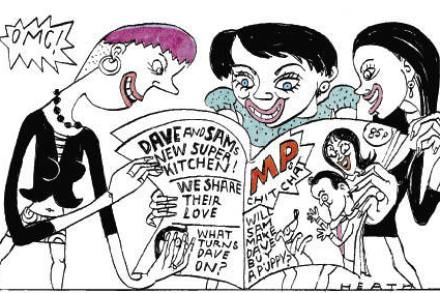In bed with politicians
Who on earth wants to know about the leaders’ children, pets, kitchens and favourite biscuits? I am sitting in the audience at Labour party conference, watching a tribute video to Gordon Brown. As Brown smiles, walks, talks, scowls and moves his limbs up and down, giving a fairly decent impersonation of a soon-to-be-discontinued toy, I have a sudden realwisation. I don’t know if Stanley Baldwin liked Murray Mints. I have never seen Winston Churchill sob on Piers Morgan’s lap, like cheese melting on toast. And I – I – I have no idea whether Clement Attlee had a nice kitchen. Why is this? Is it because the private lives and

















